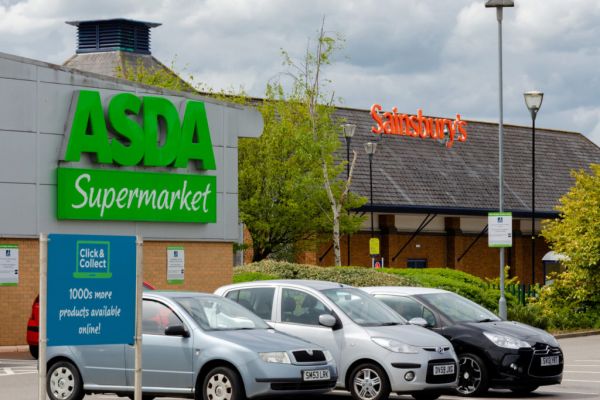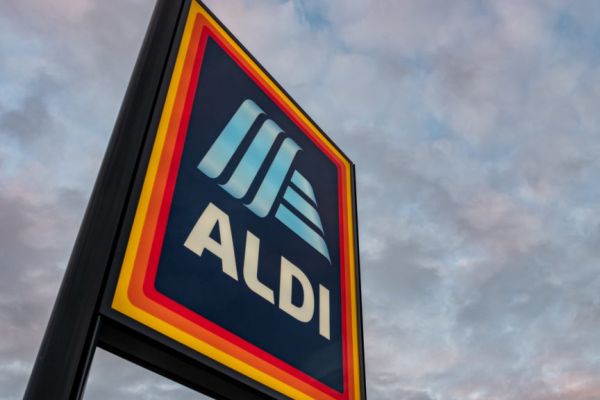Britain's competition regulator on Thursday blocked Sainsbury's £7.3 billion ($9.4 billion) takeover of Asda, saying it would have resulted in higher prices for shoppers.
With their plan to overtake market leader Tesco thwarted, what next for Sainsbury's and Walmart owned Asda?
What Does Sainsbury's Do Now?
Sainsbury's immediate priority is to tackle its underperformance versus its main rivals - Tesco, Asda and No. 4 player Morrisons. Monthly market share data from researcher Kantar has placed Sainsbury's as the big-four laggard for over a year.
Barclays analysts believe Sainsbury's like-for-like sales decline accelerated in its fourth quarter, while profit fell year-on-year in its second half.
Sainsbury's publishes full-year results on Wednesday, providing an opportunity to show investors it can take action to arrest the decline.
"We struggle to imagine what management will be able to say to accomplish this, especially as Tesco appears to be building its momentum in the UK market," the Barclays analysts said.
What Happens To Sainsbury's CEO Mike Coupe?
Mike Coupe, Sainsbury's boss since 2014, is very well regarded but as the architect of the deal he may face pressure to step down.
He blotted his copybook when he was caught on camera singing "We're in the money" when the deal was announced last April.
New chairman Martin Scicluna may decide that if Sainsbury's needs a major shake-up it is best carried out by a new leader.
One source connected to the deal said he suspected Coupe would depart in six months or so.
The leading internal candidate to succeed Coupe is John Rogers, the CEO of Argos and a former finance chief of Sainsbury's, analysts said.
What Does Walmart Do With Asda Now?
The deal would have given Walmart a way to exit Britain, one of the weakest performers in its global portfolio.
With that route blocked, analysts said the U.S. group might consider a stock market listing of Asda or try to sell it. The Sunday Times reported in February that private-equity group KKR was mulling an offer.
But Judith McKenna, CEO of Walmart International, has suggested it will simply keep and support it.
"Our focus now is continuing to position Asda as a strong UK retailer delivering for customers. Walmart will ensure Asda has the resources it needs to achieve that," she said.
Her statement suggests that any proposal would require a pretty full price to tempt Walmart into a sale, analysts at Jefferies said.
What happens To Asda CEO Rodger Burnley?
Sainsbury's had been the main driver of the deal, with Asda CEO Roger Burnley keeping a low profile over the last year.
Burnley, a former Sainsbury's executive, re-joined Asda in 2016 and became its boss in January 2018 with full knowledge the deal with Sainsbury's was on the cards.
He will be encouraged by Walmart's pledge of "resources", giving him ammunition to continue Asda's recovery.
Burnley recently quit as a director of Premier League soccer club Huddersfield Town to focus on his role at Asda.
"Our focus is now on the most important job we all have – delivering for our customers," he said in a statement.
“Asda’s DNA is delivering low prices for hard working families and that will never change."
What Does It Mean For Consumers?
Sainsbury's and Asda promised they would save shoppers £1 billion ($1.29 billion) by cutting prices of everyday items by 10 percent within three years, funded by better deals with big suppliers.
Critics said the pledge was neither verifiable nor credible. "Over three years it would have been impossible to assess what prices would have been without the merger," John Colley of Warwick Business School said.
What Does It Mean For Supplier?
Sainsbury's and Asda wanted to extract £350 million of savings from big suppliers.
Small suppliers and farmers would not lose out, they said, and would have the best of both groups' terms, for example 14-day payments.
Duncan Swift of accountants Moore Stephens, however, said small suppliers would welcome the block: "Suppliers had been worried that the merger would have meant the merged businesses would have far too much power over them, which would likely have led to savage price cuts."
News by Reuters, edited by Donna Ahern Checkout. Click subscribe to sign up for the Checkout print edition.






